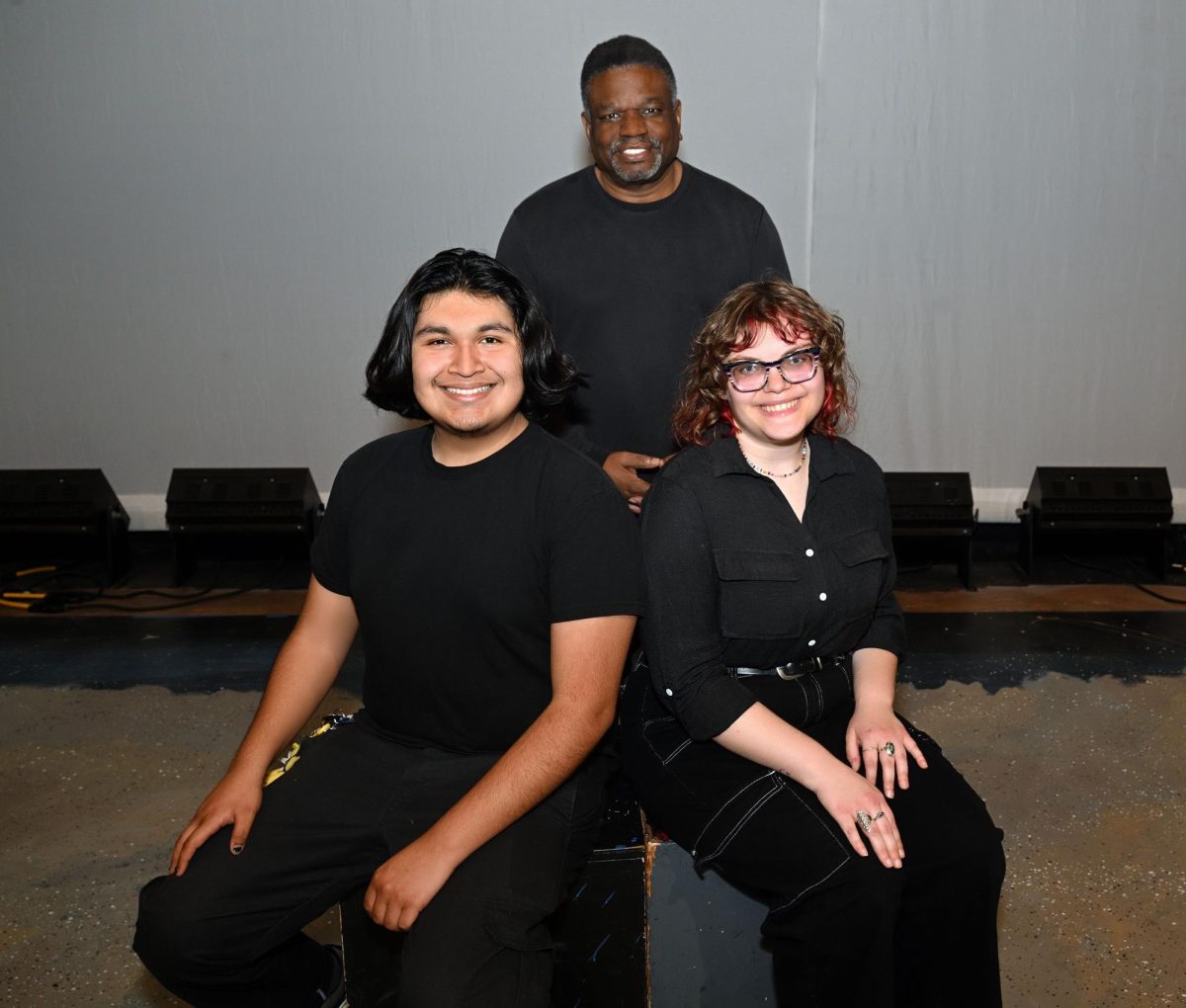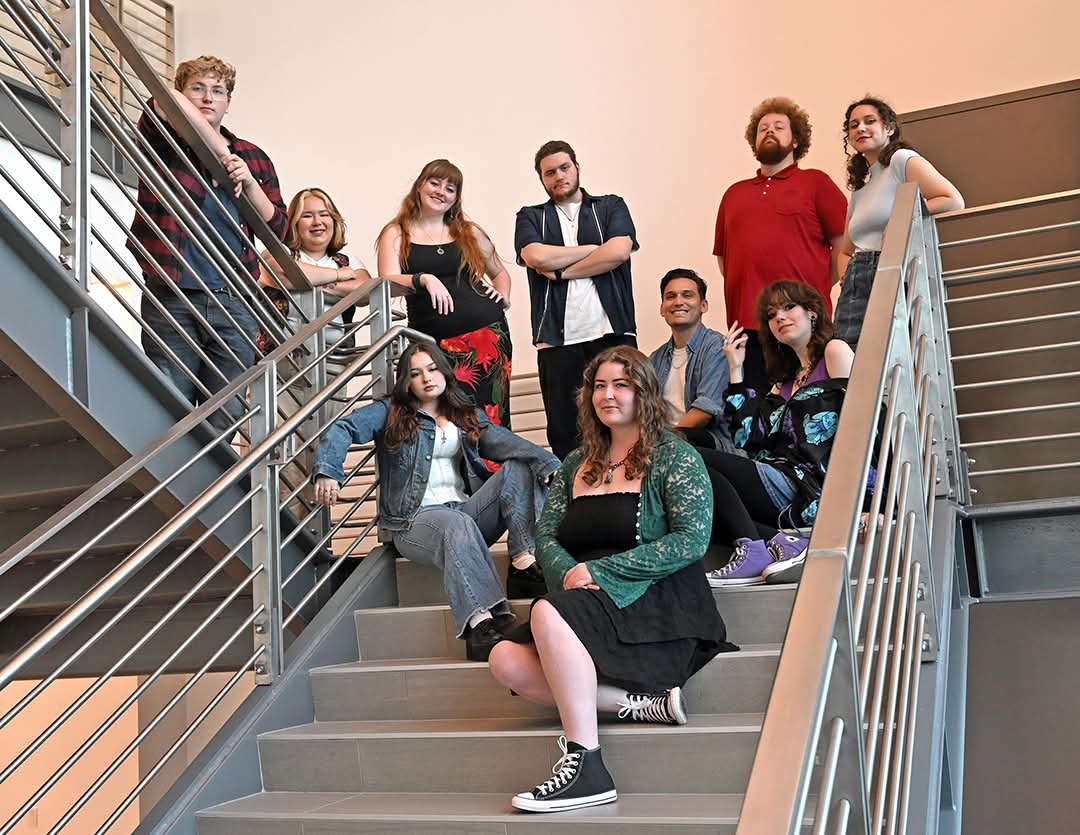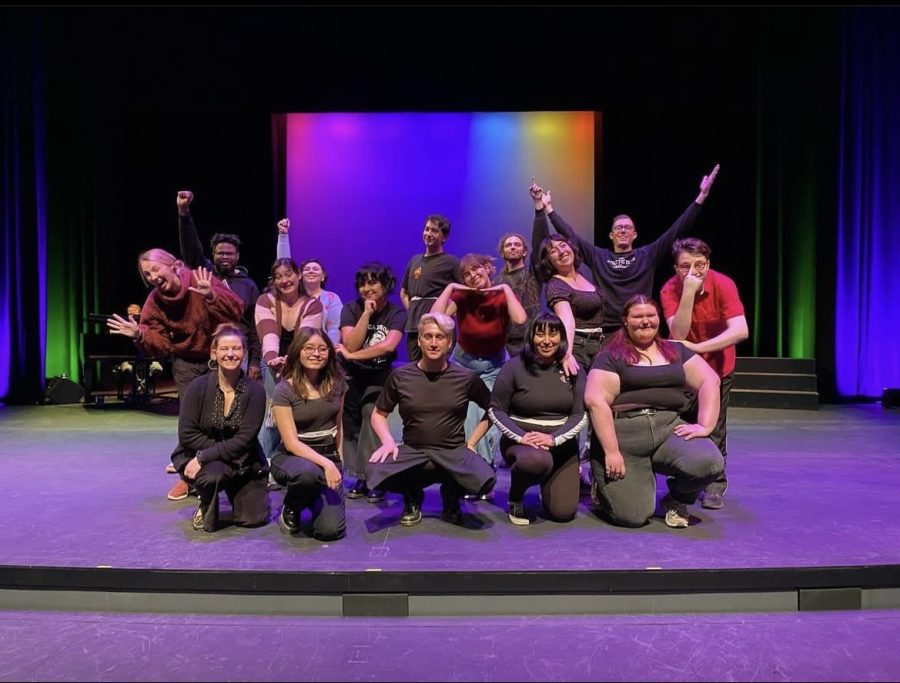After months of preparation, Grossmont Theater’s production of Our Town opened on the evening of May 16. This production saw director Walter Allen Bennett adapt the classic and widely-performed American play, originally written by Thorton Wilder in 1938.
Our Town is set in the fictional town of Grover’s Corner, New Hampshire, and presents its setting as a small community filled with simple people. The story of the play follows the town’s various inhabitants, focusing largely on the Gibbs and Webb households, especially children George Gibbs and Emily Webb. As the narrative goes on, Our Town covers themes of youth, love and death.
Given the reputation of the play as a classic, Bennett discussed taking a novel approach as director for this production. “If this is the most produced American play in the history of American theater, then how does it stand the test of time? How do we make it relatable?” Bennet said.
According to Bennett, the approach involved being “diverse” and analyzing how dynamics of daily life have both changed and remained the same with the passing of time. Another key aspect of the production under Bennett’s guidance was a heavy focus on cast and crew members gaining familiarity with the play’s writing, spending weeks on breaking down the script and individual scenes.
Bennett emphasized, saying, “For the first maybe three weeks, all we did was character work, all we did was story.”
Our Town contains many major and minor characters, and the supporting players help anchor the play’s sense of time, as they both evolve and stay the same. For example, Howie Newsome is present in all three acts, being the town’s down-to-earth milkman.
Still, the biggest factor driving the plot of Our Town forward is the romance between teenagers George and Emily, who grow into adulthood together. Emily and George can be seen as differing in some ways, as Emily is a bright student, and George mostly aspires to playing baseball and one day working on his uncle’s farm. Ali Laith, who plays George Gibbs in the production, spoke of his appreciation for George as an “everyman” character.
“I love because he’s simple and honest, and he’s defined by his love for Emily, which I think is really sweet,” said Laith. Indeed, George and Emily’s romance defines not only themselves but Our Town itself, as the second act jumps ahead to their wedding day.
Notably, Our Town is presented as a metanarrative, jumping across time in its three separate acts. Act 1 takes place in 1901, Act 2 takes place in 1904, and Act 3 takes place in 1913. Audiences are guided through the play by the Stage Manager, a complex character who acts a fourth-wall breaking narrator, commenting not only on the town’s history but the themes of the play’s story. Grossmont’s production of Our Town saw Aubrey Schreier take on the role of the Stage Manager.
Bennet explained the complicated nature of the Stage Manager: “The Stage Manager is a very difficult part, because they are in the play, they are out of the play, they talk about the play, and then they become part of the play. They become our guide throughout the play.”
As demanding as the part is, the Stage Manager finds themselves with many opportunities to be a part of Our Town’s story, such as being the minister for George and Emily’s wedding in Act 2. Tragically, this audience’s view of this lovely union is promptly cut short, as they are ushered into Act 3. Even more tragically, Act 3 deals primarily with Emily’s experience in the afterlife, as the audience quickly learns she died nine years into her marriage.
Emily encounters the spirits of various townspeople who have passed away, including her own mother. Emily struggles to adapt to her new existence as a far-removed spirit, having left behind her beloved husband and their two children, and eagerly takes an opportunity to relive a day of her innocent youth.
This decision only brings pain, however, as Emily becomes distraught and frustrated with how the living go through days at a hurried pace without appreciating life. Pain can also be found back in the present, as the play’s story concludes with George crumpled at his late wife’s grave, overcome with grief as Emily’s spirit watches on.
Commenting on his performance as the bereaved George in the final emotional moment in the play, Laith praised his co-star Kaylee Kloberdanz, who plays Emily.
“Luckily, I can hear Emily’s monologue just before then, so that really helps, because Kaylee’s such a wonderful actor,” said Laith. “So it’s wonderful to be able to hear that, and they make it really easy for me.”
In the end, it seems appropriate that Our Town’s legacy has found its way to the stage for nearly a century, as the theme of community connects it to the performing arts own underlying spirit of collaboration. That principle shines bright in Grossmont College’s production, where hard work and commitment channeled the combined efforts of the cast and crew into a show to remember.
“We spent a ton of time for them to no longer see it as something outside of them; they were able to embody who the characters were and are, and I really believe they achieved that,” said Bennett. “That’s what I’m the most proud of.”









